
© Damir Yusupov. (Click image for larger version)
Bolshoi Ballet
Onegin
★★★✰✰
Moscow, Bolshoi Theatre
21 June 2017
www.bolshoi.ru
There were few dry eyes in the auditorium as the opulent gold and red curtains of the Bolshoi Theatre closed on the petite distraught figure of Pushkin’s heroine, Tatiana. After a long and passionate pas de deux, she had, with the strongest moral determination, just rejected the love of her life and sent him away forever. The moment left us silent and breathless — until a thunder of applause erupted.

© Damir Yusupov. (Click image for larger version)
Nina Kaptsova performed the role in Onegin that evening and poured every emotion into the final spine-tingling moments of the ballet. In the 3rd act, many years after the first childhood scenes, Tatiana has become a gracious and loving wife to her caring, protective husband, Prince Gremin, nicely performed by Egor Kromushin. Dressed in a gorgeous red ballgown, their gentle duet of plunging arabesques and swirling turns showed her happiness and satisfaction with the aristocratic life she is now leading. Everything for her is serene and fulfilling. Then suddenly Onegin bursts into her life once more – the man she had loved as a young girl and who had so cruelly rejected her – and she is torn between duty and passion.
Four years ago, the Bolshoi took John Cranko’s much loved and popular 1965 ballet into its repertoire despite criticism voiced in Russian ballet circles in earlier years. It was felt that it was a travesty to turn Pushkin’s treasured words into a cliched foreigners’ view of Russian life. However, today, now securely tucked up in the bosom of their ballet world, it has become a firm a favourite with Russian audiences as well as dancers.
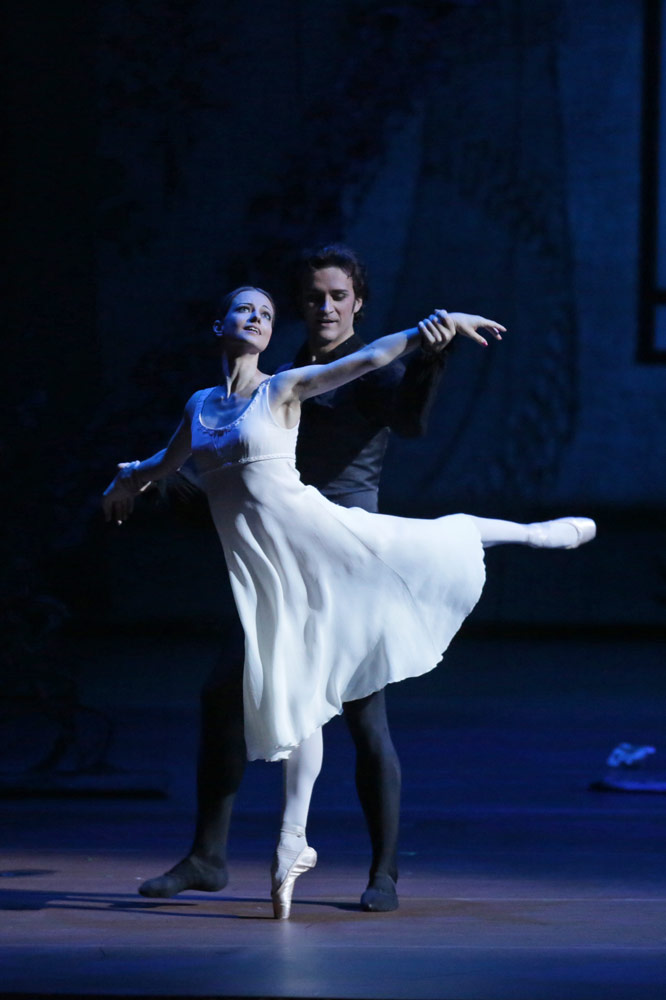
© Damir Yusupov. (Click image for larger version)
Because of the familiarity and great love Russians have for the story of Onegin – many, from schooldays, can recite huge chunks of the poem by heart – I had anticipated a deeper understanding of the ballet, more soul-filled and emotionally dramatic than the many western productions I have seen. But, despite the pretty folk dances and party scenes, it wasn’t until the third act that I felt that the company made the ballet their own. Here, the dancing in the ballroom scene was strong, elegant and courtly in the finest Bolshoi tradition, while the leading couple produced goosebumps in the audience with their full-out, impassioned Russian bravura and acting, something not as strongly defined in the earlier two acts.
In the first scene, as the avid bookworm not interested in the girlish frivolities going on around her, Kaptsova interpreted Tatiana as a painfully shy young thing, and she often got lost in the action, shrinking into the background too much and leaving her sister Olga – Daria Khokhlova – to take the limelight with joyous characterisation. With the arrival of the sophisticated, though supercilious, figure of Onegin, Tatiana’s romantic desires bubble up and she falls immediately in love with him. And indeed who wouldn’t when it was Ruslan Skvortsov in the title role, a dancer who ticks all the boxes — handsome, elegant, fine physique, dignified – Kaptsova’s wide eyes followed his every move with childlike wonder, blinded by her own notions of romance and to his obvious disdain of country living.
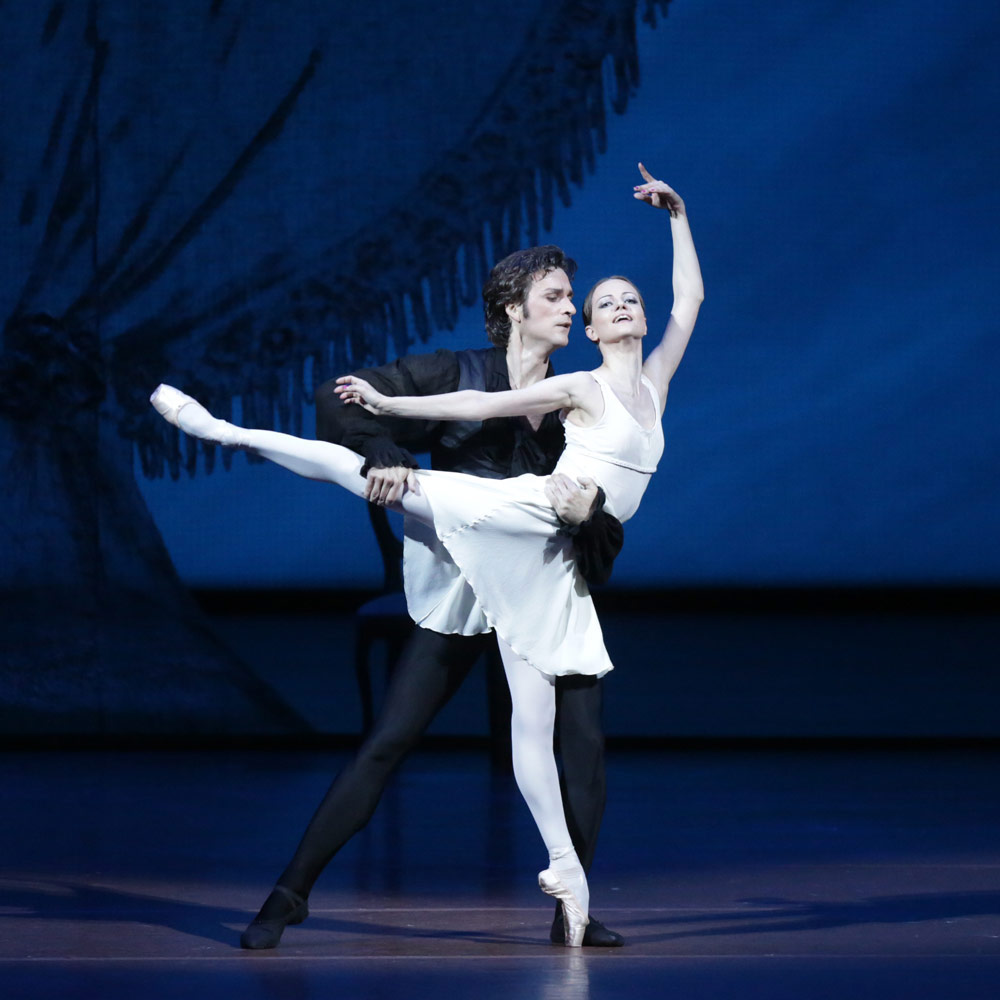
© Damir Yusupov. (Click image for larger version)
Later, in her dream of Onegin, she gives vent to her burgeoning feelings, and imagines the passion he would express to her. The bedroom pas de deux with its wonderful, challenging, fast moving choreography is one of the most spine-tingling romantic ballet moments, though here, the two Bolshoi dancers needed more spontaneous abandonment and impassioned physicality. Despite the powerful music urging them on, it seemed every move was calculated. Their emotions were textbook correct, as was their beautiful dancing, but they didn’t offer (for me) the sensuality, risk-taking and powerful dramatic context of that exciting dream sequence. (Happily, members of the audience seeing the ballet for the first time thought it fabulous).
Skvortsov’s Onegin in the second act remained aloof, coldly handing back Tatiana’s love letter and flirting foolishly with Olga, a move that ended tragically in the duel with his good friend Lensky — a role smoothly danced by Artemy Belyakov, especially in his final solo.
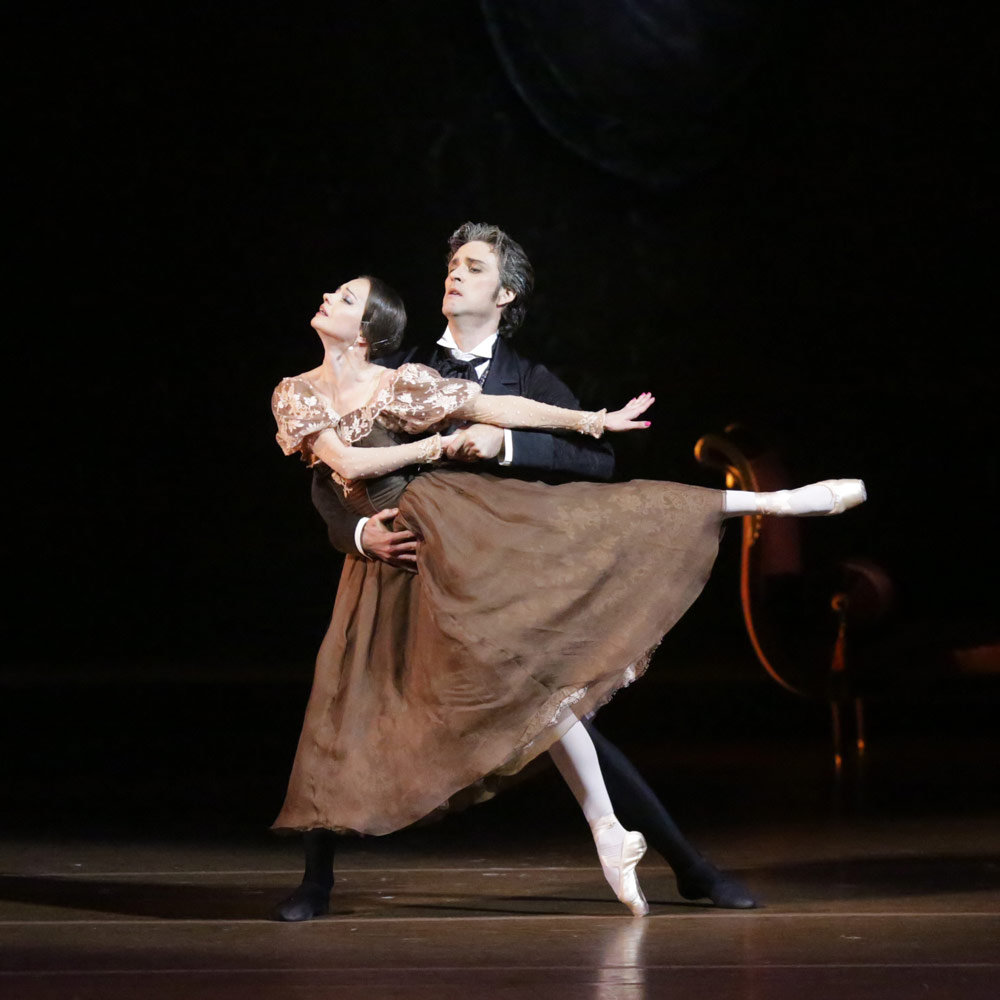
© Damir Yusupov. (Click image for larger version)
So it was the 3rd act which saw the leading duo pour out their dramatic emotions strongly and convincingly. Now their ardour and excitement surged with Tchaikovsky’s stirring music, vigorously played by the Bolshoi orchestra under the baton of Pavel Sorokin. In the emotional rollercoaster duet, Kaptsova’s whole body showed that, while Tatiana’s heart was ready to be tempted, her moral conscience anchored her. When she imperiously commanded Onegin to leave, Kaptsova’s tiny frame seemed to grow in stature with that one authoritative gesture. Then, on realising that he was gone forever, she crumpled weeping, before walking stalwartly forward as the curtains fell, her painful decision felt by us all.

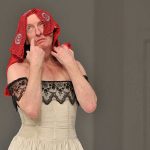
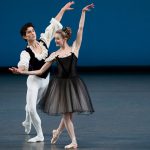
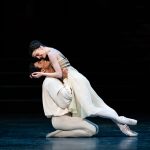
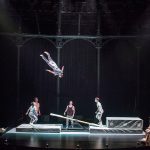

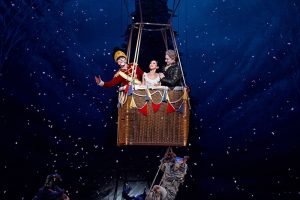

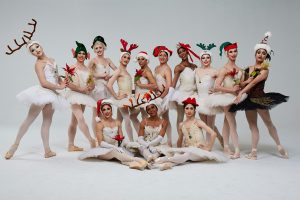

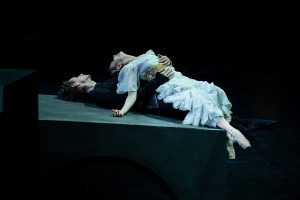

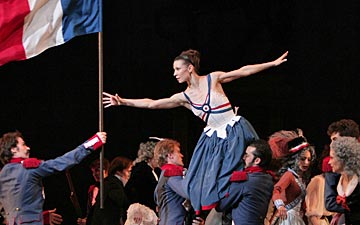
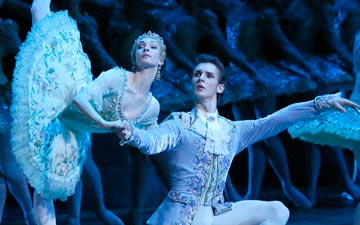
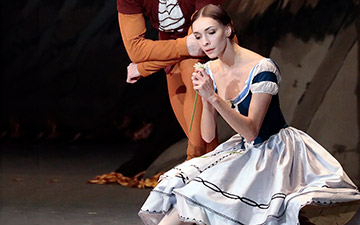
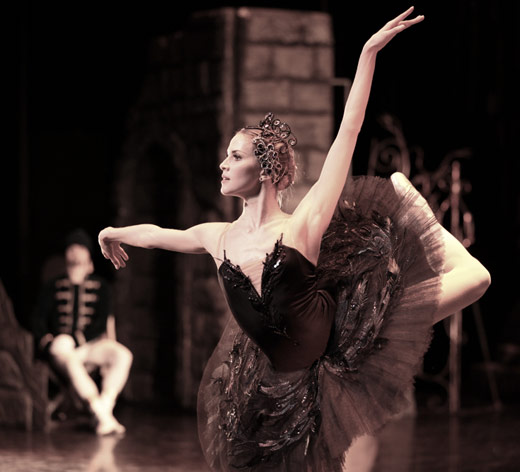

You can see the last duet on youtube
https://www.youtube.com/watch?v=pn6UTHc0MIk
P.S. One of the best ballerinas of Bolshoi was dismissed from July 1.2017 by new
Ballet Director Makhar Vaziev.